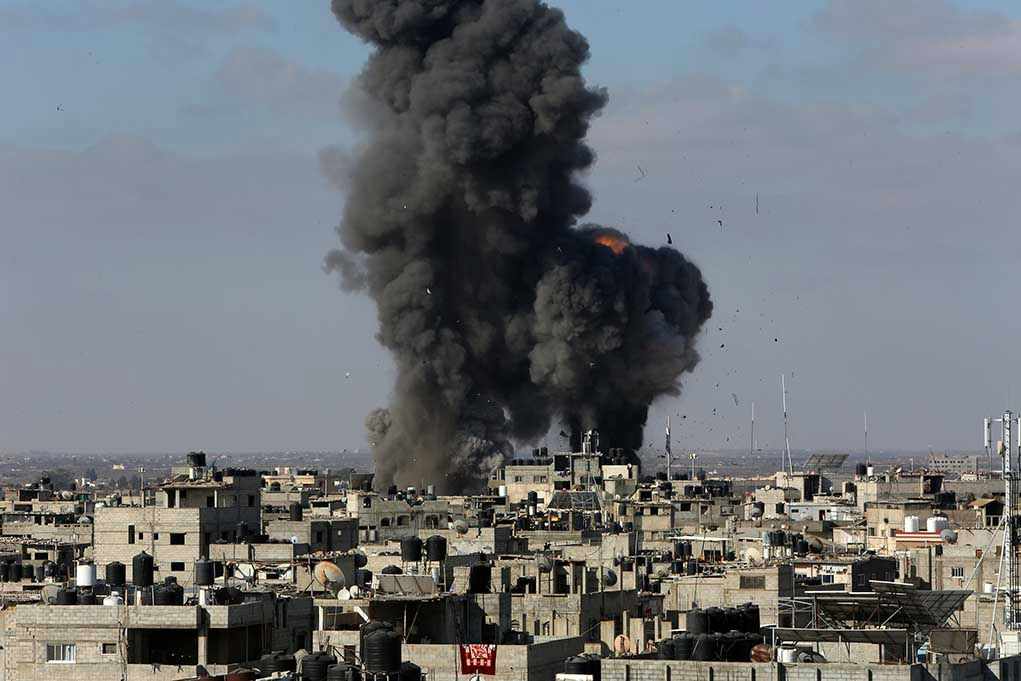
The deliberate destruction of Gaza’s communications infrastructure by Israeli strikes raises significant concerns over humanitarian and legal implications.
Story Overview
- Gaza experiences a near-total blackout as Israeli Defense Forces target communications towers.
- Over two million residents are left isolated, complicating humanitarian efforts.
- Repeated attacks on infrastructure raise questions about potential violations of international law.
Israeli Strikes and Communications Blackout
In September 2025, the Israeli Defense Forces (IDF) intensified their air and artillery strikes targeting Gaza City’s residential high-rises, including key telecommunications infrastructure. This strategic move has resulted in a near-total blackout of internet and telecommunications services, isolating over two million residents. Such actions have significantly impeded humanitarian responses and obstructed the documentation of on-ground events, raising international concern.
The systematic destruction of Gaza’s telecommunications infrastructure is not a new tactic. Since August 2025, Israeli bombardments have included targeting residential towers that host crucial telecom infrastructure. The Mushtaha Tower, a key telecom hub, was destroyed on September 5, 2025, leading to widespread internet and phone outages across Gaza City and northern regions.
Humanitarian and Legal Implications
The blackout has had dire humanitarian implications. Isolated from the rest of the world, Gaza’s residents face increased difficulty in accessing vital services and emergency assistance. Humanitarian organizations, including the Red Crescent and UN agencies, have been severely hampered in delivering aid and coordinating their response efforts due to the lack of communication capabilities.
Legal scholars and digital rights organizations argue that the deliberate targeting of civilian infrastructure, such as telecom towers, violates international humanitarian law. The blackouts are viewed as a form of collective punishment, potentially constituting war crimes. These actions have sparked calls from international digital rights groups for the immediate restoration of connectivity and the protection of civilian infrastructure.
International Response and Advocacy
The international community has expressed concern over the recurring blackouts and their implications for civilian safety and rights. Organizations like the Electronic Frontier Foundation (EFF) emphasize that connectivity is a fundamental human right and crucial for maintaining communication during crises. The ongoing situation in Gaza highlights the broader issue of using telecom blackouts as a tool of warfare and information control, prompting heightened global advocacy for digital rights and the protection of civilian infrastructure in conflict zones.
The situation remains fluid as Gaza continues to endure cycles of blackouts and partial restorations amid ongoing military operations. The humanitarian and legal challenges presented by these actions necessitate urgent international attention and intervention to prevent further erosion of human rights and safety in conflict zones.
Sources:
Telecom and internet outage imminent in Gaza as Israel bombs residential high-rises
Communication blackouts: Israeli cyberattacks against civilians in Gaza
Israeli army pounds Gaza City with 150 strikes as communications collapse




